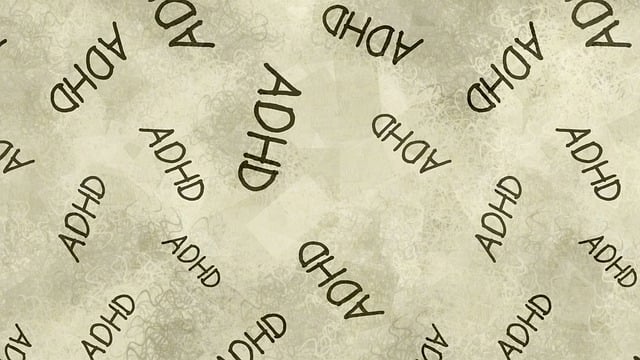Golden Hebrew Speaking Therapy emphasizes understanding cultural nuances to deliver effective mental health care. By addressing language barriers, stigma around mental illness, and complex trauma, this approach creates safe spaces for clients. Therapists use tailored interventions like Stress Management Workshops and proactive risk management strategies to enhance client well-being and foster resilience. Effective communication, cultural sensitivity, and empathy-building techniques are key to preventing risks and improving the accessibility of trauma support services.
Mental health professionals constantly face complex challenges, with risk management being a critical aspect of their practice. This article explores an essential component of ensuring patient safety, particularly within the unique context of Golden Hebrew Speaking Therapy. We delve into understanding specific risks, identifying potential hazards, and developing tailored strategies for effective risk management. By exploring these key areas, mental health practitioners can implement comprehensive plans to deliver safe and impactful care.
- Understanding Risks in Mental Health Practice: A Golden Hebrew Speaking Therapy Perspective
- Identifying Potential Hazards and Vulnerabilities
- Developing a Comprehensive Risk Management Plan
- Implementing Strategies for Safe and Effective Care Delivery
Understanding Risks in Mental Health Practice: A Golden Hebrew Speaking Therapy Perspective

In the realm of mental health practice, understanding risks is a cornerstone of effective therapy. The Golden Hebrew Speaking Therapy approach recognizes that each client brings their unique cultural tapestry, which can influence how they perceive and engage with therapeutic processes. This perspective underscores the importance of navigating not only individual psychological landscapes but also the societal and communal contexts in which clients live. For example, mental illness stigma reduction efforts within culturally specific communities require tailored interventions to address unique challenges and barriers, enhancing the accessibility and impact of trauma support services.
Golden Hebrew Speaking Therapy professionals must be adept at managing stress among their client base, many of whom may carry the burden of complex life experiences. Organizing Stress Management Workshops can equip both therapist and client with tools to cope with stress and anxiety, fostering a safer and more supportive therapeutic environment. This proactive approach not only minimizes risks associated with untreated mental illness but also strengthens the bond between therapist and client, ensuring a more profound and lasting impact in trauma support services.
Identifying Potential Hazards and Vulnerabilities

Mental health professionals, like any other specialists, face unique challenges that can expose them to various risks and vulnerabilities. Identifying potential hazards is a crucial step in developing an effective risk management plan. This process involves a comprehensive assessment of the therapist’s work environment, client base, and personal circumstances. For instance, a Golden Hebrew Speaking Therapy practitioner might encounter cultural barriers or language differences that require specialized knowledge and skills to navigate successfully.
Additionally, professionals in this field are often exposed to sensitive and emotionally charged situations, including crisis intervention scenarios and discussions related to mood management. They may also engage in community outreach programs, which, while beneficial, can present risks such as increased exposure to traumatic events or the potential for burnout due to heavy caseloads. Understanding these vulnerabilities is key to implementing appropriate strategies outlined in a risk management plan, ensuring the well-being and resilience of mental health professionals.
Developing a Comprehensive Risk Management Plan

In the realm of mental health profession, where vulnerability is a constant companion, developing a robust risk management plan akin to wielding a shield against potential pitfalls. This strategy isn’t just about crisis prevention; it’s a proactive approach to ensure both client well-being and professional resilience. A comprehensive plan should incorporate tailored mood management techniques, fostering an environment where clients feel heard, understood, and safe to express their innermost struggles.
By integrating communication strategies that encourage open dialogue and active listening, mental health professionals can anticipate potential triggers, navigate sensitive topics adeptly, and foster a collaborative healing process. Moreover, grounding practices rooted in Mind Over Matter principles empower both therapist and client to reframe challenges as opportunities for growth, cultivating a mindset of resilience that transcends the therapy room, extending into everyday life. For Golden Hebrew Speaking Therapy professionals, this means not just managing risks but also enriching the therapeutic journey with culturally sensitive, empathetic care.
Implementing Strategies for Safe and Effective Care Delivery

Implementing strategies for safe and effective care delivery is paramount in mental health professional settings. This involves integrating robust risk assessment tools to predict and mitigate potential hazards, such as those encountered when working with clients experiencing complex trauma. By conducting thorough risk assessments, therapists can anticipate triggers, develop tailored interventions, and ensure the well-being of both client and caregiver. For Hebrew speaking therapy practices, these strategies take on added importance due to cultural nuances and linguistic barriers that require specialized approaches, like Golden Hebrew Speaking Therapy, to bridge communication gaps and foster meaningful connections.
Empathy building strategies play a crucial role in this process. Mental health professionals must cultivate a deep understanding of their clients’ unique experiences, including those shaped by adverse childhood experiences (ACEs) or cultural stressors. Through active listening, non-judgmental attitudes, and the utilization of empathy-fostering techniques, therapists can create a safe space for clients to openly share their stories, leading to more effective treatment plans. Trauma support services specifically designed to address these sensitive issues empower individuals to heal and grow, ultimately enhancing the overall quality of care delivered within these specialized practices.
Mental health professionals, including those practicing Golden Hebrew Speaking Therapy, must proactively manage risks to ensure safe and effective care. By understanding unique cultural aspects like the Golden Hebrew perspective, identifying potential hazards, and developing comprehensive risk management plans, practitioners can deliver high-quality services while minimizing vulnerabilities. Implementing evidence-based strategies fosters a secure environment, benefiting both professionals and clients. Embracing these steps is essential for navigating the complexities of mental health practice with confidence and resilience.









